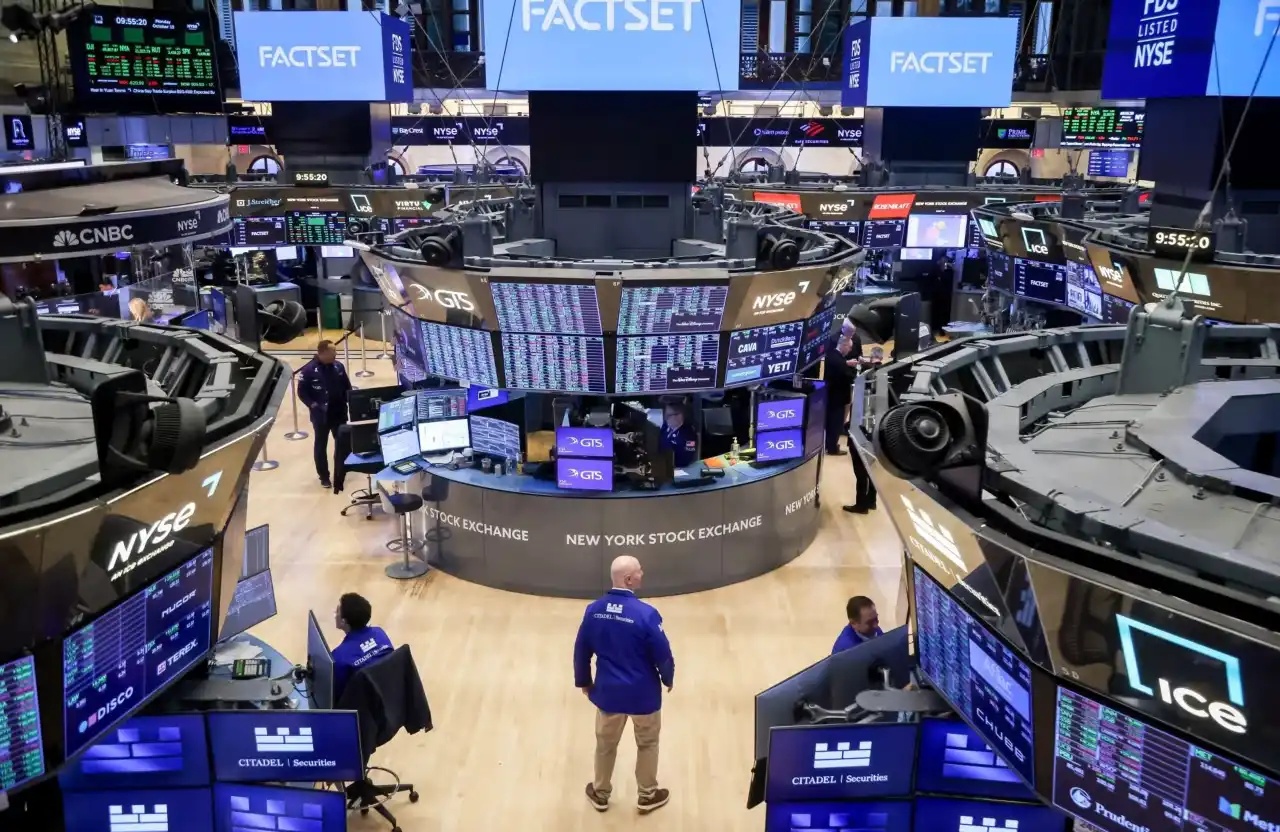Exclusive | Upbit to List in the US, More Profitable than Coinbase But Valued at Only 1/7
Original Article Title: "Exclusive | In-Depth Look at Upbit's US Listing: South Korea's Largest Coin Exchange More Profitable than Coinbase, but Valuation Only 1/7"
Original Article Author: Lin Wan Wan, Odaily
On November 27, 2025, a "minor earthquake" occurred in the South Korean cryptocurrency community.
Upbit, as the absolute market leader in the Korean market, was hit by a hacker attack, with 54 billion Korean won (approximately $36 million) disappearing. Upbit later revised this to 44.5 billion Korean won in lost Solana network assets.
However, the market's panic was quickly absorbed.
This is because based on Upbit's quarterly net profit of approximately $200 million, Upbit could recoup the stolen amount in just 2 weeks.
Just three days before the theft, Upbit's parent company, Dunamu, announced a "century-old marriage" with South Korean internet giant Naver Financial, preparing for an IPO on the US stock market with a current valuation of $10.3 billion.
Behind this merger is not only the combination of old and new chaebols in Korea but also a Korean super financial group preparing to go public in the US.
In this world, many seemingly isolated "black swan" events, when connected, often turn out to be just a speck of dust falling from a huge "gray rhino."
Stolen Funds and Merger
First, we must categorize the nature of the "theft."
$36 million is a large sum. However, in the face of a trading platform, we need to do the math.
According to Dunamu, Upbit's parent company, in the 2024 annual shareholders' meeting and based on the 2024 financial report: annual operating profit was 11.8 trillion Korean won (approximately $8-9 billion), net profit was 983.8 billion Korean won (approximately $700 million), a year-on-year growth of 22.2%.
Clearly, this stolen amount is merely a mosquito bite for its massive balance sheet.
Currently, the South Korean Financial Services Commission has tentatively identified the hidden hand behind the scenes as the North Korean "Lazarus" group. The official assessment is that this attack replicated the "privilege escalation" technique from 6 years ago, with the hackers suspected of stealing or impersonating administrator accounts to transfer funds, rather than a direct server breach. Currently, South Korean regulatory authorities have urgently entered Upbit's headquarters for an on-site investigation.
But it was precisely this bite from a mosquito that exposed a deeper issue: Upbit has become too big. So big that its cash flow is enough to entice hackers, so big that its mere existence is enough to make regulators wary.
This is why the "century merger" three days ago seemed so crucial. If the theft showcased Upbit's financial strength, then the merger exposed its anxiety and ambition.
According to public information, Naver Financial (Naver's financial subsidiary) will undergo a comprehensive equity swap with Dunamu (Upbit's parent company).
Here is an extremely counterintuitive data comparison. In terms of operating profit, Upbit is at 1.18 trillion Korean won; Naver Financial is only at 103.5 billion Korean won.
In other words, Upbit's earnings are 10 times that of the other party.

With such a stark difference in profitability, why merge?
Logically, this should have been an "overwhelming" or "takeover" of Naver Financial by Upbit. But in the world of capital, the logic has never been that whoever has more money is the boss.
So, behind this merger, it is more about the cooperation of Korean political interest groups. Upbit, represented by Naver, made a strategic move toward the internet and emerging industries, known as the "new political forces," in exchange for Naver's powerful political protection. It is only through this kind of restructuring that bypassing Korean regulations and heading straight to the U.S. Nasdaq can be achieved by leveraging Naver's endorsement.
For more details on Upbit's listing disclosure, we exclusively interviewed NDV Dollar Fund founder Jason Huang, an investor with long-term in-depth research on the Korean cryptocurrency trading ecosystem.
NDV is a compliance-focused hedge fund specializing in "digital asset equities + derivatives," known for its stringent risk control through independent custody and auditing. In terms of past performance, NDV's first fund, Fund I, has performed remarkably, achieving a 275.5% settlement return rate within two years.
Below is our interview.
Interview on Upbit Listing
DynaVisor: What is Upbit expected to achieve with a listing in the U.S.?
Jason: Currently, the merger between Upbit's parent company Dunamu and Naver Financial could be the largest in crypto history.
After the merger is completed, following the typical preparation period for US stocks, it is expected to take 8-9 months. If everything goes smoothly, the ideal scenario would be to file for listing in the second half of 2026.
From what I currently understand, the world's largest top-tier investment banks are all vying to be their underwriters, as it is also one of the best-performing projects in terms of profit. For example, Kraken only turned a profit in the third quarter of this year and already has a valuation of $200 billion.
Dongcha: How is Upbit's compliance and listing preparation?
Jason: Upbit is a very mature and transparent company, basically equivalent to a "pre-listed company." It is currently audited by PricewaterhouseCoopers (PwC) Korea and is one of only five compliant trading platforms in Korea. Therefore, the level of compliance is similar to that of Coinbase in its early days.
The company has no preferred shares, only common shares, and has transparent disclosure of information. The listing preparation work has been basically completed, and after the merger is completed, it is only awaiting regulatory clearance.
Dongcha: Upbit is currently valued at $10.3 billion. How do you view this valuation?
Jason: This is clearly a project in the primary market that has a significant discount.
Comparing it to the US exchange platform Coinbase, which currently has a market value of around $70 billion and a price-earnings ratio (PE) of about 30-40 times, Robinhood's PE even reaches 60-70 times.
In contrast, Upbit's valuation in the primary market is only around $10 billion. Even taking into account the "Korean discount," Upbit remains a very attractive value opportunity. Bankers from top-tier investment banks believe this is a multi-billion dollar opportunity.
There has long been a so-called "Korean discount" in the Korean stock market. To explain, this is due to factors such as geopolitical risks and chaebol governance structures, leading to Korean companies being generally undervalued compared to similar global companies.
However, if Upbit were just a profitable trading platform, its story would only reach the level of the next Coinbase. But what is truly more valuable is the merger it has just completed.
The exchange ratio between Upbit's parent company Dunamu and Naver Financial is approximately 1:2.5. If we consider market value: Dunamu, the parent company of Upbit, accounts for 3, while Naver Financial accounts for 1. After the merger, the CEO of Upbit's parent company will still be the new single largest shareholder.
Dongcha: What does this merger with Naver Financial signify?
Jason: Let's use an analogy.
What is Naver? It is Korea's Google combined with Amazon.
What is Naver Financial? It is Korea's "Alipay" or "Google Pay."
Therefore, this merger will create an unprecedented financial giant. We can think of it as a trinity of "Coinbase (exchange) + Google Pay (payment) + Circle (stablecoin)."
Dongcha: Why mention Circle?
Because the new Korean government is strongly promoting the Korean won stablecoin. Referring to Circle's business model of paying a substantial amount to Coinbase annually as a "protection fee," this process will undoubtedly involve Upbit.
Currently, no company in the market can possess both a "traditional payment license" and a "crypto exchange license," and both are national-level applications. The valuation logic of this ecosystem loop is no longer a simple PE ratio; it is the multiplier effect of platform economics, which is good business.
If Coinbase is seen as a "trading platform + stablecoin partnership" and Robinhood as a "broker + crypto gateway," then in the future, if Upbit completes the merger and issues a Korean won stablecoin, it will be more like a "payment infrastructure + trading platform + native stablecoin" ecosystem.
This is why current investors believe that a $10.3 billion valuation is like "picking up money."

Dongcha: Earlier, Coinbase was mentioned. Will Upbit's operating costs be lower than Coinbase's?
Jason: Yes, Upbit's operating cost is only one-tenth of Coinbase's.
Interviewer: Why is there such a large cost difference?
Jason: Coinbase operates in the U.S. and competes globally with Robinhood, Binance, and Kraken. Hence, they incur high U.S. labor and compliance costs and are still burning cash to compete.
On the other hand, Upbit operates in the South Korean market where the competition has mostly been eliminated. As the holder of the world's second-largest spot trading volume, second only to Binance, Upbit enjoys an absolute monopoly.
In economics, this is called "excess rent from a natural monopoly," where almost every additional unit of revenue can directly translate into net profit.
This has created a significant "valuation gap": a behemoth with a profit margin far exceeding Coinbase's, holding a monopoly position, yet its valuation is only one-seventh of Coinbase's.
For investors, this glaring value mismatch is an enticing opportunity. They are betting on one thing: by listing in the U.S., they can fill this massive valuation gap.
While Coinbase operates in the global market and faces continuous competition from Kraken, Robinhood, and others, Upbit operates in a market where competition has been mostly eliminated, holding a monopoly position. Therefore, every additional unit of revenue can be more efficiently converted into profit.
Interviewer: If Upbit's valuation is so undervalued, why would anyone want to sell their first-tier equity?
Jason: Some Koreans believe they cannot fully control the entire listing cycle, and some are concerned that the listing may be delayed until the bear market phase, so they prefer to cash out at this stage.
Personally, even if it reaches the bear market phase, a $10.3 billion valuation still offers a strong return on investment.
Interviewer: Many media reports suggest that Masayoshi Son also played a role in promoting this acquisition. Is that true?
Jason: That's inaccurate. Masayoshi Son only owns shares in Naver's parent company. In this subsidiary merger involving Naver Financial, Masayoshi Son is not directly involved. It's like the recent reports about Jack Ma buying Ethereum, which was not true. He was merely a shareholder, and maybe even Jack Ma himself didn't know he had bought Ethereum. Similarly, Masayoshi Son probably doesn't know he facilitated their largest merger in South Korea, haha.
Insight: Finally, let's discuss your view on the cryptocurrency market. How do you see the macro market environment for next year?
Jason: We are optimistic about next year. A few months ago, we were interviewed and predicted a 30%-50% pullback within six months, which has now mostly occurred. Retail investors who needed to exit have already done so, and leverage has also been cleared up.
As long as the U.S. is in a rate-cutting environment next year, risk assets are unlikely to fall, and the market will see good performance.
Epilogue
Back to the beginning.
While ordinary retail investors were still lamenting the loss of $35 million in Upbit, true investors were calculating stock swap ratios and planning the Nasdaq bell-ringing ceremony.
This is a power transition in Korean business history.
Through the merger with Naver, Upbit is showcasing this governance structure upgrade. The future Upbit will no longer be just a place for trading coins but a comprehensive financial technology group integrating payments, trading, and stablecoins.
This is not a power game of who controls whom but a strategic choice made to adapt to the global wave of cryptocurrency regulation.
Upbit is becoming a typical example of a non-U.S. cryptocurrency industry: cryptocurrency exchanges from any country are all heading down the same path, from the gray area towards the beginning of political cooperation.
Welcome to join the official BlockBeats community:
Telegram Subscription Group: https://t.me/theblockbeats
Telegram Discussion Group: https://t.me/BlockBeats_App
Official Twitter Account: https://twitter.com/BlockBeatsAsia











